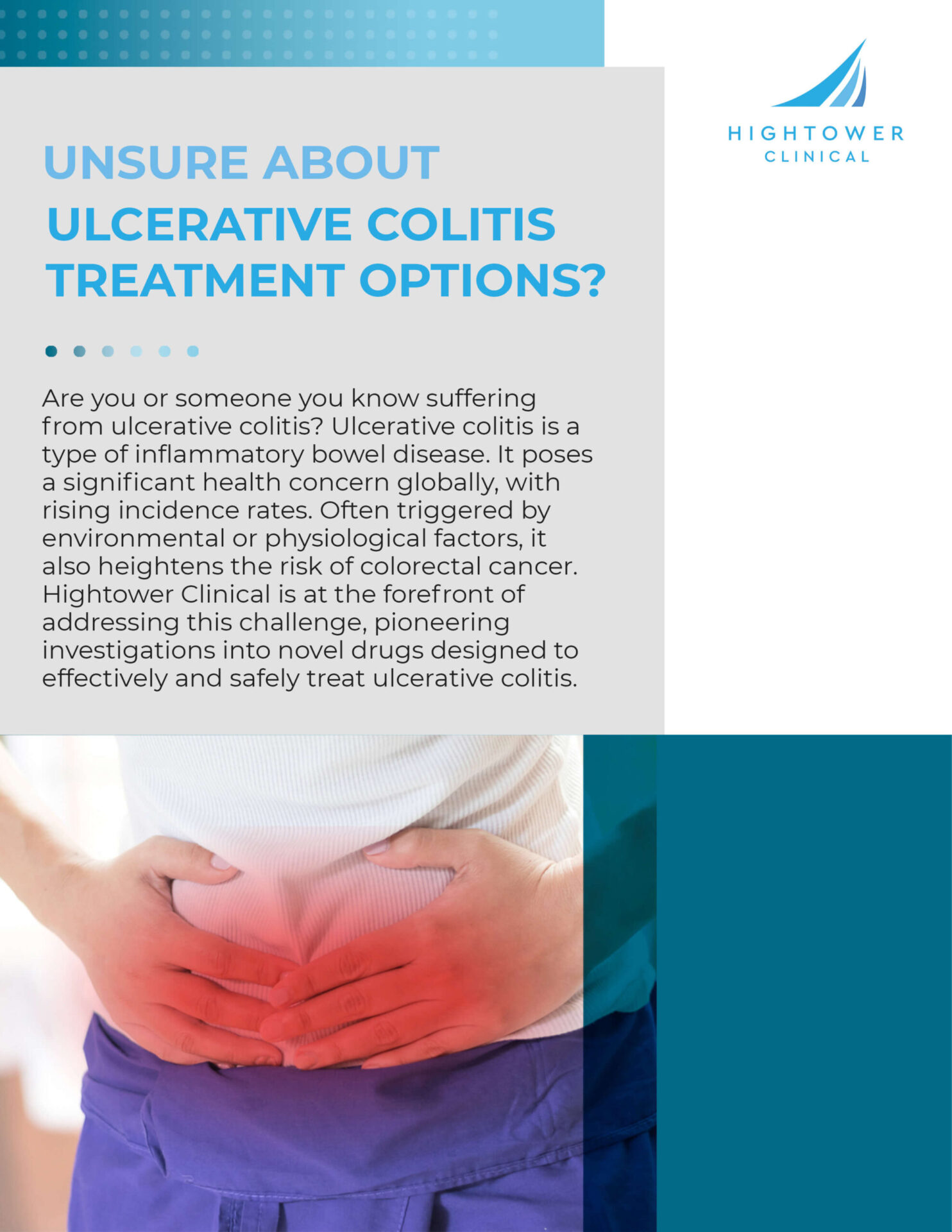Yes, having Inflammatory Bowel Disease (IBD), including conditions like Ulcerative Colitis (UC) and Crohn’s disease, can increase the risk of developing colon cancer over time. However, this risk is generally higher in cases of long-standing and extensive disease involvement.
Ulcerative Colitis
Our research in ulcerative colitis aimed to develop effective treatments for the gut and give you relief from pain.
Ulcerative Colitis - Inflammatory Bowel Disease
Ulcerative Colitis (UC) is a type of Inflammatory Bowel Disease (IBD) characterized by chronic inflammation in the colon and rectum. The diagnosis of UC primarily relies on colonoscopy results. It is more prevalent than Crohn’s disease, occurring three times more frequently. Ulcerative colitis (UC) affects approximately 1 million individuals (about the population of Delaware) in the United States.
Hightower conducted numerous clinical trials to explore potential treatments and research in Ulcerative Colitis. These trials focused on evaluating the safety and effectiveness of new drugs aimed at reducing the symptoms and colon inflammation of patients with moderate to severe UC and IBDIBD.
Current Status
Not Recruiting
Study Count
7
Ulcerative Colitis
| Study Name | Protocol Number | Sponsor |
|---|---|---|
| Ulcerative Colitis / Inflammatory Bowel Disease (IBD) | Abbvie | |
| Eli Lilly and Company | ||
| Protagonist Therapeutics, Inc | ||
| Ventyx | ||
| Bausch Health Americas, Inc. | ||
| Abbvie | ||
| AstraZeneca | ||
| Abbvie | ||
| Abivax | ||
| Takeda | ||
| Gilead | ||
| Takeda | ||
| Ferring | ||
| Pfizer |
Frequently Asked Questions
How is Ulcerative Colitis (UC) diagnosed?
UC diagnosis typically involves a combination of medical history review, physical examination, blood tests, stool tests, imaging studies (such as colonoscopy or sigmoidoscopy), and biopsy of the colon lining.
What are the benefits of joining a clinical trial?
You get early access to new treatments, contribute to medical progress, and receive close monitoring by our medical team.
Are there any risks involved in clinical trials?
Yes, potential side effects, treatment uncertainty, time commitment, and receiving a placebo are all possibilities.




